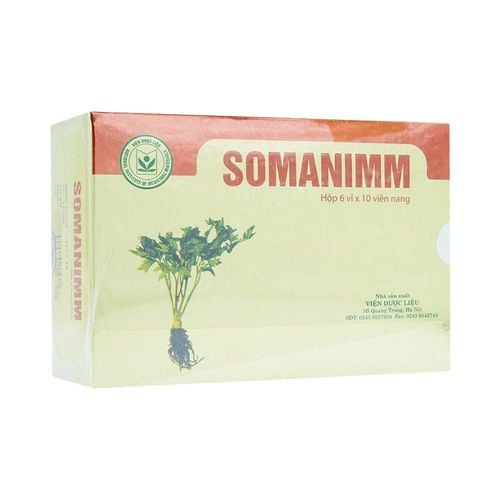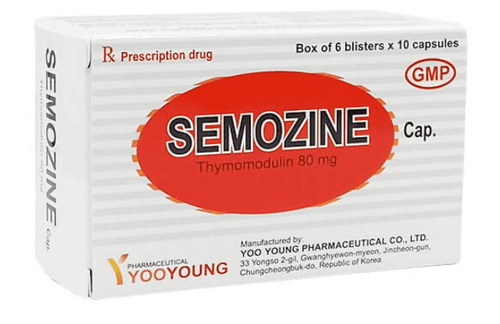This is an automatically translated article.
What to give children to drink to increase resistance depends on the age of the child. However, at all ages, there is a common point that children need to drink enough water. Infants under 6 months of age need to be exclusively breastfed with breast milk. Weaning children to adulthood can have a more varied menu such as fruit juice, vegetable juice, yogurt, and formula.
1. Drinking enough water helps increase resistance
Water has the effect of transporting white blood cells throughout the body and eliminating toxic substances from the body through perspiration. Therefore, parents should train their children to maintain the habit of drinking enough water every day to help enhance metabolism, help the heart pump blood more efficiently and transport oxygen in the blood, an essential nutrient for normal activities. cell movement.
2. Drinking breast milk helps strengthen resistance
Breast milk has many nutrients that help strengthen the resistance, protect the baby from many viruses and bacteria that cause disease. Therefore, mothers should exclusively breastfeed their babies for the first 6 months postpartum and possibly for 24 months.
3. What to give children to drink to increase their resistance is vegetable juice
When the child is able to eat solid foods, the mother can add vegetable juices to the child's diet to help strengthen the child's resistance. Yellow, orange, red and dark green vegetables such as pumpkin, carrots, sweet potatoes, tomatoes, bell peppers, gac, broccoli, garlic, ginger, turmeric, etc. contain many essential minerals and vitamins. They are beneficial for the digestive system and resistance of children, in addition, they also contain a large amount of fiber to help prevent constipation and aid in the digestion of food.
Some fruits also help strengthen children's resistance such as citrus fruits (grapefruit, oranges, tangerines, lemons, etc.), papaya, kiwi help supplement vitamin C; nuts such as almonds help add vitamin E to help prevent colds; Sunflower seeds are rich in substances such as vitamin B6, vitamin E, magnesium, selenium, which help reduce stress, reduce bad cholesterol in the body, prevent depression and maintain the function of the immune system.

Cho trẻ uống gì để tăng sức đề kháng đó là nước ép rau củ quả
4. Drinking yogurt increases resistance
Yogurt is the answer to the question "what should you give your baby to increase resistance". In yogurt contains probiotics to help supplement beneficial bacteria to help strengthen resistance because up to 70% of the immune system is located in the digestive tract. In addition, it also helps to balance the intestinal microflora and is a great source of vitamin D for the child's body.
Parents should give their children yogurt dessert 30 - 60 minutes before going to bed to support digestion and help children sleep well or drink it 2 hours after taking medicine for children who are taking medicine.
Low-sugar and low-fat yogurt has more benefits than high-sugar yogurt, so parents should give priority to buying low-sugar yogurt for children. This helps limit the risk of obesity and diabetes in children with excess sugar.
Do not give yogurt to children with processed foods such as sausages, fried chicken, french fries because when combined together, beneficial bacteria in milk can be destroyed by food, causing ineffectiveness. of yogurt.
5. Give the child powdered beans, cereals
Beans contain many types of immune-supporting minerals such as zinc and iron, which help strengthen resistance and reduce the risk of infections for children. Cereals are rich in omega-3s, which help support the activity of white blood cells, which is beneficial for the child's immune system.
6. Drink HMO fortified formula
Formulas containing HMOs are used for infants who are not exclusively breastfed or are unable to breastfeed. The HMO component, which is abundant in breast milk, has the effect of supporting the intestinal microflora to significantly reduce the risk of gastrointestinal and respiratory infections in infants.
7. Drinking green tea helps increase resistance
If you do not know what to give your baby to increase resistance, green tea is a very good choice. Green tea is rich in epigallocatechin gallate, EGCG, and the amino acid L-theanine which help support the production of antimicrobial compounds in T lymphocytes. In addition, it also contains flavonoids, a substance with antioxidant effects, reducing stress and fatigue.

Cho trẻ uống gì để tăng sức đề kháng đó là sữa mẹ
8. Supplement with vitamins to support resistance
A number of vitamins have the effect of supporting children's resistance, including:
Vitamin A: Adequate vitamin A supplementation (found in amaranth, gac fruit, water spinach, etc.) can help reduce the risk of 23% death in young children, the lack of this vitamin can cause secretion in the exocrine glands, reducing the ability to fight pathogens. Vitamin E: Vitamin E is abundant in nuts such as beans, peanuts, sunflower, bean sprouts, barley sprouts, dark green vegetables. It has a protective effect on vitamin A and lipids in cell membranes from oxidation, protecting cells from infections. Vitamin C: Vitamin C is abundant in vegetables, citrus fruits, has the effect of stimulating the transformation of T lymphocytes and enhancing the activity of white blood cells, helping to form enhanced complements. immunity for children. Vitamin D: Vitamin D is involved in many functions of the immune, digestive, circulatory, and nervous systems, of which 10-20% are synthesized through the diet, and 80-90% through radiation. ultraviolet ray. Therefore, you should combine sunbathing for children 15-30 minutes/day and eating foods such as seafood, egg yolks to enhance vitamin D for children. B vitamins: Folate (B9) and pyridoxine (B6) have the most important role in the immune system. The synthesis of cells involved in the immune mechanism is slowed down if the body is deficient in folate and pyridoxine. These vitamins are found in cereals, nuts, and rice bran. Iron: Iron is required for cell division and affects cell-mediated immunity rather than humoral immunity. Therefore, iron deficiency can increase the risk of infection for the body, it is abundant in wood ear, shiitake, egg yolk, etc. Zinc: Zinc participates in hundreds of metabolic enzymes, helps strengthen immunity, heals wounds, maintains taste and smell, so when zinc deficiency increases the risk of respiratory infections, diarrhea due to decreased resistance. Selenium: Selenium plays an essential role in the enzyme glutathione peroxidase, an enzyme that affects every component of the immune system. Selenium deficiency can cause impaired white blood cell and thymus gland function, suppressing the immune system. Strengthening the body's resistance is a method to help defend and fight against pathogens that enter the body causing disease, especially for young children when the immune system is still immature. In addition to a nutritional and scientific lifestyle, parents need to give their children adequate vaccines and add necessary micronutrients such as zinc, selenium, chromium, vitamins B1 and B6, ginger, and cherries. ri (vitamin C),... to improve taste, eat well, reach the correct height and weight, enhance resistance to less sickness and less digestive problems.













